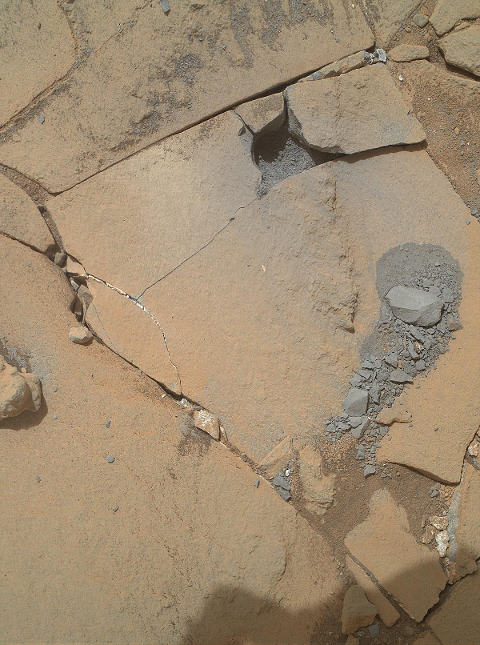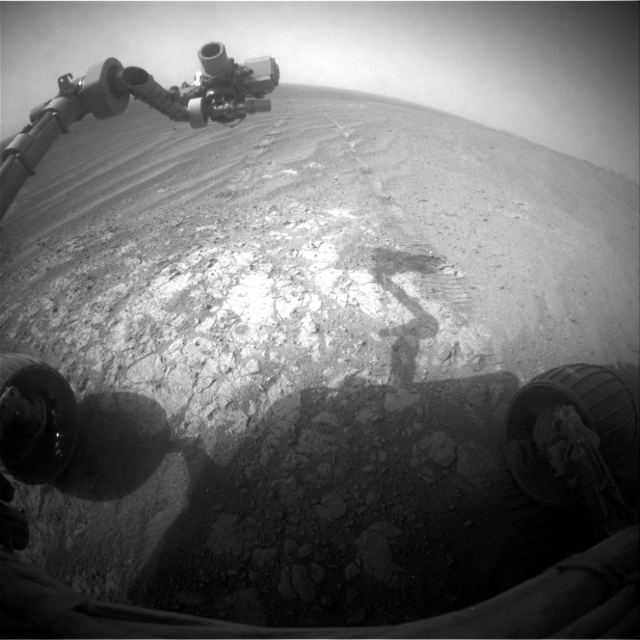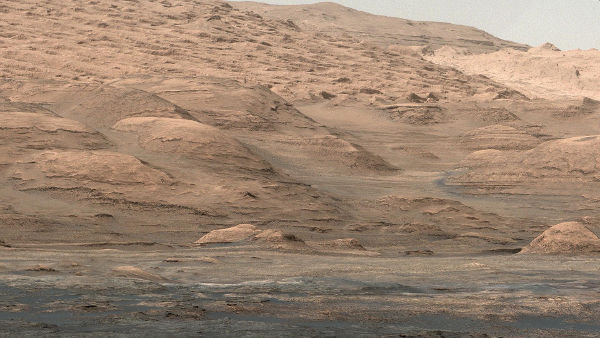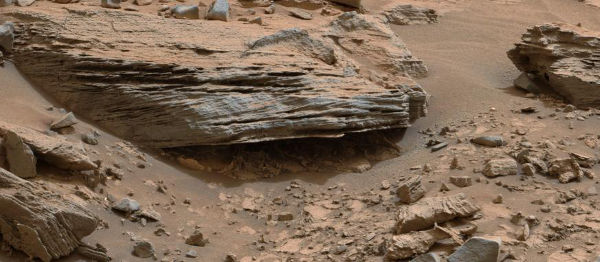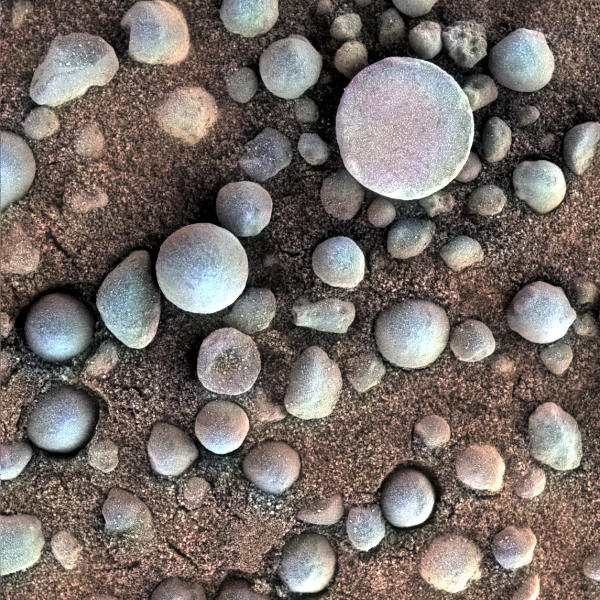
Mars Explorer Rover Opportunity had been scouring the martian surface for a few months when it took this 2004 picture, close to the Fram Crater. Though these look like large size pebbles and stones, this image only shows about a 3 centimeter cross section of the Mars surface and was taken by the microscopic imager camera on Opportunity’s robotic arm. The official name for the pebbles and stones is actually spherules – these mineral concentrations are called “blueberries” and are rich in hematite.
